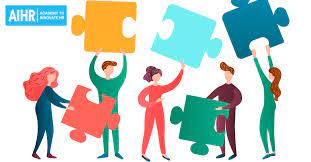Social Action Groups: Making a Difference Together
Social action groups play a vital role in driving positive change in our communities and beyond. These groups bring together individuals who are passionate about various social issues and are committed to taking action to address them. Whether it’s advocating for environmental sustainability, fighting for human rights, or promoting equality and justice, social action groups provide a platform for like-minded individuals to come together and make a difference.
Key Characteristics of Social Action Groups:
- Passion: Members of social action groups are driven by their passion for creating a better world. They are dedicated to their cause and willing to invest time and effort to bring about positive change.
- Collaboration: Social action groups thrive on collaboration and teamwork. By working together, members can leverage their diverse skills and perspectives to achieve common goals.
- Advocacy: Advocacy is at the core of what social action groups do. They raise awareness about important issues, lobby policymakers, and mobilize communities to support their cause.
- Action-oriented: Social action groups are not just about talking—they are about taking action. Whether it’s organizing protests, hosting events, or launching campaigns, these groups are proactive in their efforts to create change.
- Inclusivity: Social action groups welcome individuals from all backgrounds and strive to create an inclusive environment where everyone’s voice is heard and valued.
The Impact of Social Action Groups:
Social action groups have the power to bring about meaningful change in society. By raising awareness, advocating for policy changes, and mobilizing communities, these groups can influence public opinion and shape the course of history. From grassroots movements that spark nationwide conversations to international campaigns that address global challenges, social action groups have the potential to make a significant impact on the world around us.
Getting Involved:
If you’re passionate about a particular social issue or looking to make a difference in your community, consider joining a social action group. Whether you volunteer your time, donate resources, or simply lend your voice to the cause, your involvement can help amplify the group’s impact and drive positive change forward.
Together, through collective action and shared commitment, social action groups are making a difference in building a more just, equitable, and sustainable world for all.
Empowering Communities: The Impact of Social Action Groups on Positive Change and Advocacy
- 1. Drive positive change in communities and society.
- 2. Provide a platform for like-minded individuals to come together.
- 3. Amplify voices of marginalized groups and advocate for their rights.
- 4. Foster collaboration and teamwork to tackle complex social issues.
- 5. Empower individuals to take action and make a difference in the world.
Challenges Faced by Social Action Groups: Internal Conflicts, Burnout, Backlash, Sustaining Momentum, and Achieving Consensus
- May face internal conflicts and disagreements over strategies or priorities.
- Risk of burnout among members due to the demanding nature of social action work.
- Potential for negative backlash or criticism from those who oppose the group’s mission.
- Challenges in maintaining long-term momentum and sustaining interest among members.
- Difficulty in achieving consensus on complex issues within a diverse group.
1. Drive positive change in communities and society.
Social action groups serve as catalysts for driving positive change in communities and society at large. By mobilizing individuals who are passionate about addressing social issues, these groups work tirelessly to advocate for meaningful reforms, raise awareness about pressing concerns, and implement initiatives that have a lasting impact. Through their collective efforts, social action groups are able to address systemic injustices, promote equality, and create a more inclusive and compassionate society for all. Their dedication to fostering positive change not only transforms communities but also inspires others to join the movement towards a better future.
2. Provide a platform for like-minded individuals to come together.
Social action groups serve as a valuable platform for like-minded individuals to come together and unite around shared values and goals. By providing a space where people with similar passions and beliefs can connect, collaborate, and support one another, these groups foster a sense of community and solidarity. This platform enables individuals to amplify their voices, pool their resources, and work collectively towards creating meaningful change in society. Through this shared platform, members can find strength in numbers, build relationships, and leverage their collective power to address pressing social issues effectively.
3. Amplify voices of marginalized groups and advocate for their rights.
Social action groups play a crucial role in amplifying the voices of marginalized groups and advocating for their rights. By providing a platform for individuals from marginalized communities to share their experiences and concerns, these groups help bring attention to issues that may otherwise go unnoticed. Through advocacy efforts and campaigns, social action groups work tirelessly to promote equality, justice, and empowerment for marginalized populations, striving to create a more inclusive and equitable society where every voice is heard and every individual is treated with dignity and respect.
4. Foster collaboration and teamwork to tackle complex social issues.
Social action groups excel in fostering collaboration and teamwork to tackle complex social issues. By bringing together individuals with diverse skills, knowledge, and perspectives, these groups create a dynamic environment where members can work together towards common goals. Through collaboration, social action groups are able to leverage the strengths of each individual, leading to innovative solutions and more effective strategies for addressing intricate societal challenges. This emphasis on teamwork not only strengthens the impact of their efforts but also cultivates a sense of unity and solidarity among members, driving them towards meaningful and sustainable change.
5. Empower individuals to take action and make a difference in the world.
Social action groups serve as empowering platforms that enable individuals to take meaningful action and create a positive impact in the world. By providing a supportive community and resources for advocacy, these groups inspire and empower individuals to raise their voices, stand up for what they believe in, and work towards positive change. Through collective efforts and shared values, social action groups empower individuals to realize their potential as change-makers and make a tangible difference in addressing societal issues and contributing to a better future for all.
May face internal conflicts and disagreements over strategies or priorities.
One significant drawback of social action groups is the potential for internal conflicts and disagreements to arise regarding strategies or priorities. As passionate individuals come together with different perspectives and approaches, clashes in opinions on how best to achieve common goals can lead to tension within the group. These conflicts may hinder progress, cause divisions, and weaken the overall effectiveness of the group’s efforts. Resolving internal disagreements requires strong communication, compromise, and a shared commitment to the overarching mission to ensure that the group can continue working towards positive change despite differing viewpoints.
Risk of burnout among members due to the demanding nature of social action work.
One significant con of social action groups is the risk of burnout among members due to the demanding nature of social action work. Engaging in activism and advocating for social change can be emotionally draining and time-consuming, leading to exhaustion and fatigue among dedicated members. The constant pressure to address pressing issues, coupled with the challenges of balancing activism with personal and professional responsibilities, can take a toll on individuals’ well-being. Without proper support systems and self-care practices in place, members of social action groups may experience burnout, impacting their effectiveness and sustainability in driving positive change.
Potential for negative backlash or criticism from those who oppose the group’s mission.
One significant con of social action groups is the potential for negative backlash or criticism from individuals or entities who oppose the group’s mission. When advocating for social change or challenging existing power structures, social action groups may face resistance, hostility, or even backlash from those who feel threatened by their efforts. This opposition can manifest in various forms, including smear campaigns, legal challenges, or public condemnation, which can create obstacles and tensions for the group as they work towards their goals. Navigating this criticism requires resilience, strategic communication, and a commitment to staying true to their values despite external pressures.
Challenges in maintaining long-term momentum and sustaining interest among members.
One significant challenge faced by social action groups is the difficulty in maintaining long-term momentum and sustaining interest among members. Over time, enthusiasm may wane, priorities may shift, and individuals may become overwhelmed with other commitments. This can lead to a decrease in participation, making it challenging for the group to sustain its impact and achieve long-term goals. To address this con, social action groups must continuously engage their members, provide opportunities for skill development and leadership roles, and adapt their strategies to keep the momentum going. Building a sense of community and fostering a strong sense of purpose can help overcome this challenge and ensure the group’s continued success in driving positive change.
Difficulty in achieving consensus on complex issues within a diverse group.
One significant challenge faced by social action groups is the difficulty in achieving consensus on complex issues within a diverse group. With members coming from various backgrounds, holding different perspectives, and prioritizing distinct goals, reaching agreement on intricate matters can be a daunting task. Differing ideologies, experiences, and priorities within the group can lead to disagreements, delays in decision-making, and potential conflicts that may hinder progress towards common objectives. Navigating this diversity of opinions and finding common ground requires effective communication, active listening, and a willingness to compromise to ensure that the group remains cohesive and focused on its mission despite the complexities involved.



